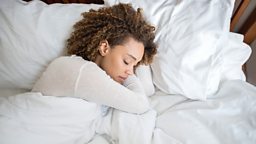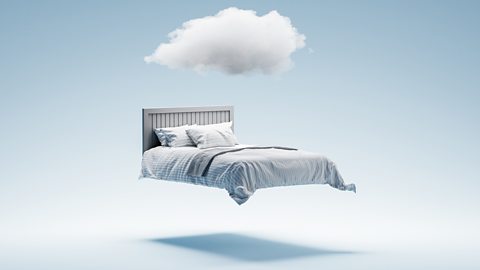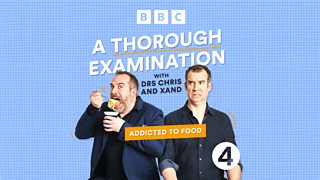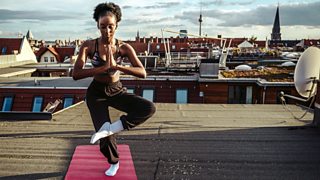Nine amazing facts to help you sleep better
Doctor Matthew Walker is a professor of neuroscience and psychology who specialises in sleep. Essentially, he’s a sleep doctor, and he joins Joe on The Joe Wicks Podcast to explain how sleep is so vital to maintaining good physical and mental health, and how you can improve your sleep.
Here are nine fascinating sleep facts we learned.

1. Sleep affects every aspect of your health
Dr Walker has been studying sleep for 20 years, mostly trying to answer the question, ‘Why do we sleep?’ “I fell in love with sleep as I read about it,” he says. “I still think it’s the most beguiling and enchanting topic… We’ve had to change the question [to] ‘Is there any physiological process within your body, or major operation of your brain, that isn’t wonderfully enhanced when you get sleep, or demonstrably impaired when you don’t get enough?’ The answer seems to be no.” If you’re regularly not getting enough sleep the negative effect on your body can be significant.
Two types of sleep will almost play out in a battle of brain domination throughout the night.Dr Matthew Walker
2. There are two types of sleep
When you’re asleep there’s a lot going on in your brain. There are two different types of sleep. The first is non-REM (rapid eye movement) sleep, which happens in four stages. “Stages one and two are the light form, then stages three and four are that really deep, restorative non-REM sleep,” says Dr Walker. Basically, that’s the sleep when your body is most at rest. Then there’s REM sleep, so called because your eyes are moving around a lot. “Rapid eye movement sleep is strongly associated with dreaming. These two types of sleep will almost play out in a battle of brain domination throughout the night.”
3. REM sleep is vital for staying fit

Dr Walker explains that REM sleep usually occurs more toward the end of your night’s sleep. If you sleep for eight hours, the final two hours may be mostly REM sleep (which is why you often wake up from dreams). It’s not only dreaming that’s happening. “REM sleep is actually the time when both males and females release the peak levels of testosterone,” says Dr Walker. “We all need testosterone for our vitality. It’s also the time when we have the highest release of things like growth hormone, which is essential for body repair after [exercise].” If you don’t get enough sleep, your body has less ability to repair muscles, so your workouts will be less effective.
4. Just one week of poor sleep can do damage
Cutting your sleep short can be more harmful than you might imagine. If you cut an eight-hour sleep to six, you’re losing much of your vital REM sleep, because that mostly occurs towards the end of your sleep pattern. “You’ve lost 25% of all your sleep,” says Dr. Walker, “but you may have lost 50, 60, even 70% of all your REM sleep”, which means you’ve lost vital body-repair time. Lack of sleep can quickly be severely damaging. “After one week of short sleep your blood sugar levels are disrupted so significantly that your GP would classify you as pre-diabetic. And we also know that men who are limited to just four or five hours of sleep a night for one week will have a level of testosterone [usually seen in] someone 10 years his senior.” Lack of sleep can increase risk of diabetes, obesity and dementia. Putting it very bluntly, Dr Walker says, “The shorter your sleep, the shorter your life.”

5. Sleeping helps regulate your weight
When you are under-slept, your body becomes stingy at giving up its fat.Dr Matthew Walker
If you’re trying to manage your weight, Dr Walker says sufficient sleep is vital. “When you’re not getting sufficient sleep, 60% of all the weight you lose will come from lean muscle mass, not fat… When you are under-slept, your body becomes stingy at giving up its fat.” That’s because you’re not producing the hormones needed to maintain muscle, so your body loses it. On top of that, a lack of sleep will cause you to eat more during the day. When you’re tired your body produces more of a hormone call ghrelin, which tells you you’re hungry. That can lead to “people who are not getting sufficient sleep eating somewhere between an extra 280 to 400 calories every single day.”
6. Naps should be very short
Joe asks Dr Walker his thoughts on naps. He says ideally you shouldn’t nap in the day because “from the moment you [wake up] a chemical called adenosine is building in your brain. The more of it that builds, the sleepier you feel, and it creates this pressure to sleep… A nap acts like a pressure valve,” so you’ll be less sleepy at bedtime. If you must nap, keep it under 20 minutes, “otherwise you start to go into the deeper stages of deep non-REM sleep”, and ideally before 2pm, “because napping late in the day is like snacking before your main meal.”

The therapeutic power of dreams
Dr Matthew Walker talks to Joe Wicks about the science of sleep.
7. Dreaming is like overnight therapy
Dr Walker describes dream sleep, or REM sleep, as “overnight therapy. That dream sleep is essentially emotional first aid.” It’s your mind’s time for processing tough things you’re going through, in a soothing way. “It takes the sharp edges off those difficult experiences so that the next day when you wake up they don’t feel as bad anymore… It’s a pair of emotional windscreen wipers, so everything gets cleared out by the next morning.” If you feel irritable or anxious after a bad night’s sleep, part of it is because you lacked that vital REM sleep.

8. A lunchtime coffee could spoil your sleep
Everyone knows caffeine and alcohol affect sleep, but maybe not how significant the effect. “Caffeine has a half-life of five to six hours, which means it has a quarter-life of 10-12 hours,” says Dr Walker. “In other words, after 10-12 hours, a quarter of that caffeine you had is still in your brain. So having a coffee at noon is the equivalent of getting into bed and, just before you turn the light out, swigging a quarter of a cup of coffee.” Even if you’re someone who thinks they can drink coffee at night and still sleep, you’re partly wrong. “Even if that’s true, the amount of deep sleep you get is reduced by 20%”. Alcohol is equally bad for sleep. Even if it helps you nod off, it’s not helping you sleep. “Alcohol is a sedative… and sedation isn’t sleep.”
9. Set a routine to get better sleep
Now we know the bad effects of too little sleep, how do we get more of it? Dr Walker says routine is vital. He calls a good sleep routine “an investment in tomorrow”. He says setting a regular bedtime and wake-up time, even on weekends, is essential. “Your brain has a 24-hour clock embedded inside it. It works best under conditions of regularity.” He even suggests setting an alarm to tell you when to go to bed. You should also keep your bedroom cool because your body has to drop its core temperature by one degree Celsius to fall asleep. Make sure your room is dark. And don’t stay in bed if you can’t sleep. “[If you lie awake] your brain quickly learns that every time you get into bed it’s the place where you’re awake. You need to retrain it to say, ‘Every time I’m in bed, I’m asleep.’ If you’re awake for 25-30 minutes… get up, listen to a podcast, or read or something. Only when you’re sleepy should you go back to bed… You’d never sit at a dinner table waiting to get hungry, so why would you lie in bed waiting to get sleepy?”
More from 成人论坛 Radio 4
-
![]()
The Joe Wicks Podcast: Dr Matt Walker
Joe Wicks is joined by the sleep expert Dr Matthew Walker.
-
![]()
Melissa Alcantara: Nine things we learned when she chatted to Joe Wicks
Joe talks to the legendary personal trainer.
-
![]()
A Thorough Examination with Drs Chris and Xand
Chris van Tulleken is on a mission to get his twin Xand to quit ultra-processed food.
-
![]()
Why you should stand on one leg
How challenging your balance could build you a confident core and maybe even a longer life.




